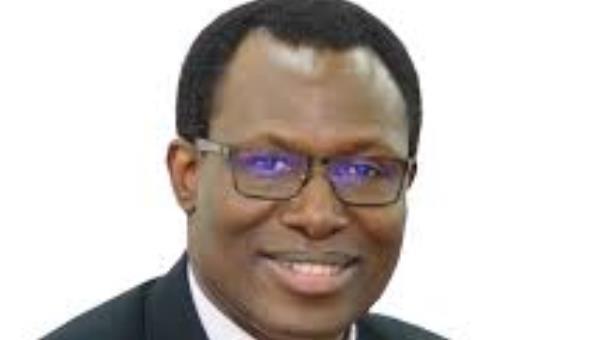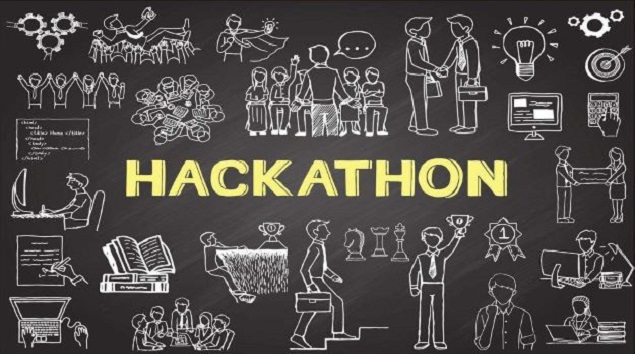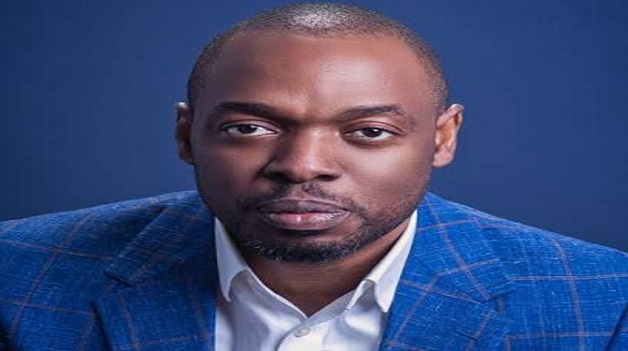General News
Defending the foundations for connectivity

By Engr. Gbenga Adebayo
In 2001, when the first GSM call was made in Nigeria how many of us would have envisaged the digital world that we live in today? The pace of growth and the rate of adoption of telecoms solutions in Nigeria has been revolutionary. It is a globally acknowledged case study that we should be proud of and a clear demonstration of what can be achieved.

Almost all of us today are reliant on the network connectivity that it has enabled in different shapes and forms. From the simple need to communicate with loved ones, to the digital platforms that enable our access to and consumption of entertainment, financial products and other critical services. Our reliance on these systems is becoming more and more acute, whether it is citizens, governments, or corporations. System downtime is increasingly disruptive and offline manual redundancies are often in the advanced stages of being phased out. The pace of this transition is not slowing down. With the core infrastructure in place, innovation is driving the exponential growth of services that ride on it. From the fully adopted social media that has changed the way we interact, to the emerging Artificial Intelligence (AI) revolution.
While this innovation is enabling exciting new possibilities, there is a tendency to focus on those opportunities, to the detriment of the core infrastructure on which it rides. It is imperative that we retain a focus on the optimisation of that infrastructure and enable continued investment in its development. We have seen how the transition from 2G, through to 3G, 4G and 5G have each enabled the development of more and more sophisticated solutions.
The continued development of core infrastructure has to be sustainable, and over the last few months we have begun to see the challenges that the operators that provide it are facing. Both MTN and Airtel have declared significant foreign exchange (FX) losses in Nigeria, and the stress is not linked to them alone. The entire ecosystem is battling with a range of challenges that must be addressed. If we fail to do so, the downstream impact on innovation will be severe. Telecoms infrastructure requires a base level of investment to maintain its current capabilities, and significant additional investment to expand and grow. It is capital intensive and that capital has to be generated through sustainable business models.
At the heart of the challenge the industry faces is the issue of rising costs. Recent financial losses are directly linked to the cost of operating towers that rely on inputs like diesel, which have increased significantly as the Naira has depreciated. The provisions large telecom companies have had to make, and the consequent losses and impact on their reserves is a red flag. It tells us that business as usual is not sustainable. If we continue as we are, then those companies will struggle to continue to invest in and maintain existing services.
But those costs are not the only challenge. General cost inflation, multiple taxation, regular and damaging vandalisation of infrastructure and the costs associated with regulatory compliance all help contribute to the high cost of operations. We cannot continue to follow a path that asks those companies to simply accept those rising costs. It is no longer sustainable, and we have reached an inflection point.
This is a critical moment for the industry. How we approach and resolve it will define the future of Nigeria’s digital economy. If you want to be able to enjoy the benefits that digitisation brings. If we want the infrastructure that enables AI and helps us drive growth, then we must take action now.
Cost-reflective tariffs, like it or not, are simply non-negotiable. We have seen the impact of price controls in other segments of the economy, like power. If providers cannot operate sustainable business models, then they stop investing. When that happens, the existing infrastructure starts to crumble. For power, a consumer can choose to take ownership of the solution by buying a generator, or a solar panel. For fuel, the government can step in as the provider of last resort and manage a subsidy regime that mitigates the impact on the population. Those options are not available in the telecoms sector. There is no self-help solution.
We fully understand and appreciate the financial stress that Nigerians are experiencing today. The cost of living is the single most significant factor in most people’s daily lives. But those people are still able to enjoy the benefits that connectivity brings, at the price they paid before these challenges became so acute. Imagine a future in which the gains of the last twenty years are reversed. Nigeria, and Nigerians simply cannot afford it. The pain that we would feel under those circumstances would be exponentially worse.
We need to find a long-term, sustainable and manageable solution to this problem. Prices will need to rise, but action needs to be taken in a measured way, through sustainable conversations and partnership with the government. It is time to address this head on.
Engr. Gbenga Adebayo is the Chairman, Association of Licensed Telecoms Operators of Nigeria (ALTON)
General News
Tech-driven Solutions Receive Commendation @ Maiden Insurance Week Hackathon

Mrs Yetunde Ilori, President of the Chartered Insurance Institute of Nigeria (CIIN), has commended the innovative and technology-driven solutions presented during the institute’s maiden Insurance Week Hackathon competition.

Ilori gave the commendation after the completion of the competition on Thursday in Lagos, held at the College of Insurance and Financial Management in Asese, Ogun, as part of the Insurance Week organised by the CIIN.
She described the solutions as crucial to the industry’s transformation and relevance in the digital age. “This shows that the future is bright for the Nigerian insurance industry.
We are transforming as an industry, and digital innovation is at the heart of that transformation,” Ilori said. She noted that 19 teams initially applied for the competition, but only six were shortlisted.
The competition, which targeted young Nigerians between the ages of 18 and 29, engaged six finalist teams over a fourweek intensive innovation process, culminating in a demo day on Wednesday in Lagos.
The hackathon focused on real-world challenges in the sector, such as inclusive insurance, fraud detection, risk management, and improving customer experience.
It was designed to cultivate the next generation of insurance innovators, deepen insurance awareness, and promote financial literacy among Nigerians.
The teams that participated in the final stage of the competition were: Ifokanbale, Insurbridge, Insurvate, Team Aegis, Team Phoenix, and The Assured Team. Team Aegis developed “Hustle Guard,” a microinsurance solution for tricycle drivers covering health, life, and income, in an effort to demystify micro insurance in Nigeria.
The Assured Team presented “Kolo Plus by Card,” an unstructured savings plan with payment and interest features tailored to low-income earners. Team Insurbridge created “Smarter Claims,” a solution aimed at improving the insurance claims process.
Team Phoenix introduced “HerShield,” a solution focused on empowering women and building trust in the insurance sector. The Assured Team also developed additional ideas to drive insurance penetration in underserved and informal communities.
After an engaging pitch session before a panel of judges, Team Insurvate emerged as the overall winner with its solution, “Claim Central”, an end-to-end digital platform designed to streamline the insurance claims process from policyholders to insurers.
Team Aegis secured second place, while Team Phoenix came in third. The panel of judges included financial sector experts such as Norah Igwe, Tunji Andrews, Diana Mulili, Sakeenat Bakare, Ibraheem Babalola, and Prince Adeshina Adeyemi-Doro.
Also speaking, Mr Eddie Efekoha, Chairman of the Insurance Week, said the hackathon demonstrated a conscious effort to explore how technology can help distribute insurance products to all parts of the country.
“We believe this initiative will spark more interest among the youth to engage with insurance, not just as consumers but as creators and innovators,” he said.
Speaking on behalf of the winning team, Mr Odunayo Ojeremi, leader of Team Insurvate, described the competition as highly competitive and rewarding. “We are excited and grateful for the opportunity.
“We didn’t expect to win, but we are glad our solution was recognised. We hope to improve ‘Claim Central’ and make it a platform that ensures seamless claims processing,” he said.
General News
Enugu Air Commences Operations Today

Enugu State-owned commercial airline, Enugu Air, is set to officially launch its operations today Monday, July 7, 2025. The launch ceremony will take place at the Akanu Ibiam International Airport, with the Minister of Aviation and Aerospace Development, Festus Keyamo, expected to attend alongside other dignitaries, according to a statement from the airline.

Dr Obi Ozor, Commissioner for Transportation, Enugu State, said Enugu Air is a key component of Governor Peter Mbah’s vision for a modern, integrated transportation system, aimed at positioning Enugu as a major aviation hub in Nigeria.
The airline will begin operations with a fleet of three Embraer jets, from the E170 and E190 series, chosen for their performance, passenger comfort, and suitability for regional routes.
The airline’s inaugural routes will form a strategic triangular operation connecting Enugu, Abuja, and Lagos, with plans to expand services to Port Harcourt, Owerri, Benin, Kano, and other key cities across Nigeria and beyond.
Ozor said, “With a strong foundation built on innovation and sustainability, Enugu Air is poised to transform regional air travel, boost state pride, and raise Enugu’s profile nationally and globally.”
The launch of Enugu Air is expected to have a significant impact on the aviation industry in Nigeria, providing more options for air travel and promoting economic development in the region.
With its modern fleet and strategic routes, Enugu Air is set to revolutionize air travel in Nigeria and establish Enugu as a major player in the country’s aviation sector.
General News
Cybervergent Selected as World Economic Forum’s 2025 Technology Pioneer Company

In affirmation of its global standing, Cybervergent, a Pan-African technology company that leverages artificial intelligence to transform how organisations manage risk, governance, privacy, and cybersecurity, has been selected as one of the World Economic Forum’s (WEF) Technology Pioneers for 2025—a global cohort spotlighting companies transforming industries through breakthrough technologies and responsible innovation.

The WEF, an international organisation committed to improving the state of the world through public-private collaboration, brings together global leaders to shape economic, technological, and societal agendas. Cybervergent now joins this global community.
The company is recognized for its innovative approach to building digital trust, reimagining how organisations manage cybersecurity, risk, privacy and governance.
Commenting on the company’s milestone, Adetokunbo Omotosho, CEO of Cybervergent, said, “I am honoured that Cybervergent has been named a Technology Pioneer by the World Economic Forum. This is more than an accolade — it’s a validation of our commitment to redefining cybersecurity, privacy, and risk management to build true digital trust.
“What makes this recognition even more meaningful is the fact that Cybervergent demonstrates innovation in AI and infrastructure can emerge from any region, challenging conventional perceptions.”
Some past recipients of the Technology Pioneer recognition, including Google, Spotify, and Airbnb have gone on to fundamentally reshape global industries.
As a member of the 2025 Technology Pioneers community, Cybervergent will be contributing to discussions shaping cybersecurity, AI, and cyber resilience across industries and the global digital economy.

 Telecom1 day ago
Telecom1 day agoY’ello Care’s 21-Day Campaign Bridges Digital Divide for Thousands Nationwide

 General News1 day ago
General News1 day agoEnugu Air Commences Operations Today

 E-Business1 day ago
E-Business1 day agoGalaxy Backbone, Rural Electrification Agency Commit to Deepening Digital and Energy Access Across Nigeria

 Broadcasting1 day ago
Broadcasting1 day agoNDPC Slaps Multichoice with ₦766M Fine for Data Privacy Violations

 News1 day ago
News1 day agoLagos-Calabar Highway Gets $100M Push from ECOWAS to Drive Regional Growth

 Telecom1 day ago
Telecom1 day ago20 Years of Digital Leadership: Layer3’s Legacy and the Road Ahead

 News1 day ago
News1 day agoNBS May Release Rebased Figures for Nigerian Economy July 11

 Telecom11 hours ago
Telecom11 hours agoNCC Wins Global ICT Award for Digital Awareness in Schools


























